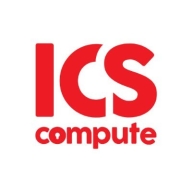

Ubuntu Linux and ICS Managed Cloud Services are competitive offerings in the tech industry. Ubuntu Linux holds an advantage for cost-conscious buyers due to its open-source nature, whereas ICS Managed Cloud Services stands out for enterprises needing extensive integrated cloud solutions.
Features: Ubuntu Linux features customizable security options, robust performance, and broad compatibility. ICS Managed Cloud Services provides comprehensive cloud management, automatic scaling, and multi-layered security. Ubuntu's flexibility is contrasted by ICS's complete cloud suite, catering to enterprises.
Ease of Deployment and Customer Service: Ubuntu Linux may pose deployment challenges for those unfamiliar with Linux systems, relying on its active community for support. ICS Managed Cloud Services eases implementation with professional support and streamlined deployment, aiding less tech-savvy users.
Pricing and ROI: Ubuntu Linux offers low initial setup costs, appealing to budget-conscious organizations with a high ROI via cost savings. ICS Managed Cloud Services demands a higher initial investment but delivers strong ROI through efficiency and scalability, offering long-term business value in cloud operations.

| Company Size | Count |
|---|---|
| Small Business | 83 |
| Midsize Enterprise | 20 |
| Large Enterprise | 53 |
ICS Managed Cloud Services delivers advanced cloud solutions tailored for businesses seeking reliable infrastructure and enhanced performance. Designed for efficiency and scalability, it supports enterprises in optimizing operations through cloud innovation.
ICS Managed Cloud Services provides a robust platform for businesses to manage workloads efficiently. Offering a seamless integration experience and high-level automation, it ensures that companies can focus on their core activities while benefiting from cloud-based advancements. It caters to diverse industry needs by promoting agility and reliability in the technological landscape.
What are the key features of ICS Managed Cloud Services?Industries such as finance and healthcare implement ICS Managed Cloud Services to handle extensive data workloads securely while maintaining compliance. The adaptability of the platform allows these sectors to innovate and scale operations effectively, improving service delivery and client satisfaction.
Ubuntu Linux is an open-source platform known for its robust security, ease of use, and rapid performance. Its lightweight design and comprehensive support system make it ideal for diverse IT environments, providing seamless management and scalability options.
Ubuntu Linux stands out with its open-source nature that allows extensive customization and access to a broad range of free software. It is widely praised for its stability and a vast package repository offering regular updates, enhancing its usefulness across different sectors. The platform is equipped with a lightweight design and excellent community support, making it scalable and easy to manage. While it could improve in areas like Windows software compatibility and user interface refinement, its benefits in enterprise management and development projects are undeniable. Improved documentation, better hardware integration, and enhanced third-party application compatibility are additional focal points to consider.
What are the key features of Ubuntu Linux?
What benefits should be considered from reviews?
Ubuntu Linux is prominently implemented in industries for tasks such as server management, application deployment, and software development. Its resource efficiency and open-source tool compatibility make it a favorite for programming, research, and cybersecurity. Companies frequently use it for web hosting, cloud services, and managing multi-user enterprise solutions.
We monitor all AWS Marketplace reviews to prevent fraudulent reviews and keep review quality high. We do not post reviews by company employees or direct competitors. We validate each review for authenticity via cross-reference with LinkedIn, and personal follow-up with the reviewer when necessary.